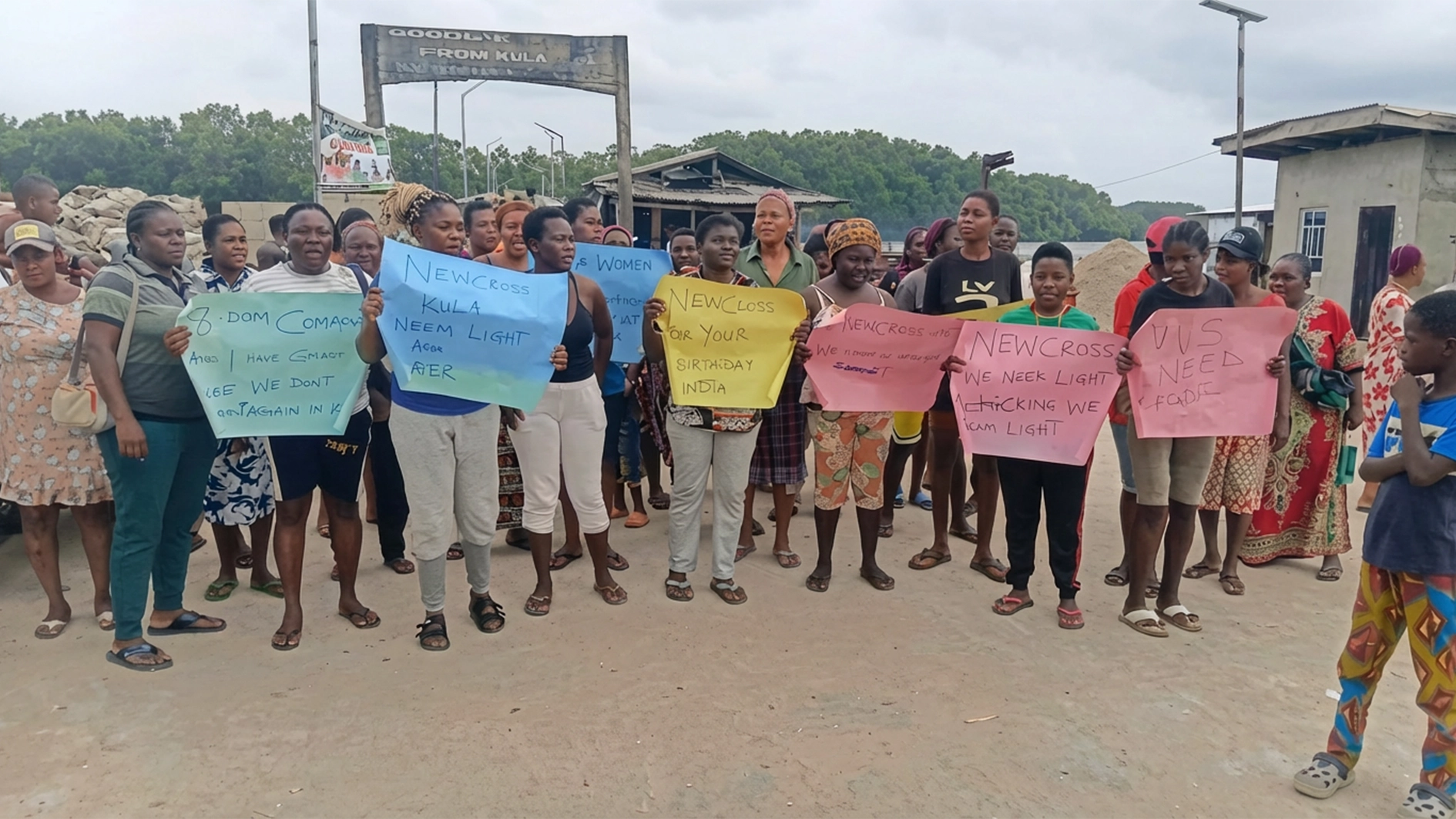Tragedy struck in the early hours of Sunday as fire gutted a section of the popular Ajah Market in the Lekki area of Lagos State, destroying goods worth millions of naira and rekindling fears of deliberate sabotage among traders.
The blaze, which reportedly began between 1 a.m. and 3 a.m., razed over 10 shops situated opposite the health centre within the market. Goods lost include household appliances, electrical gadgets, babywear, clothing, suitcases, umbrellas, and travel bags—many of which had been recently stocked in preparation for the Sallah sales rush.
Mr. Oke Joshua, whose brother had only recently restocked his shop after a wedding ceremony, was seen pointing to the charred remains of their family business as scavengers combed through the ruins. “This is a devastating blow,” he said. “My brother just invested everything he had.”
In the aftermath, groups of traders and sympathisers gathered around the rubble, some weeping quietly, while others attempted to salvage anything left behind. Hausa boys, popularly referred to as “Abokis,” assisted with clearing debris and salvaging usable materials from the scene.
One affected trader said amid tears, “The fire hit the back section near the interlocked road. Everything I owned was in that shop. It’s gone.”
Suspicion and fear have been growing among traders following repeated fire incidents in the same section of the market. An anonymous trader lamented, “This is the third time in recent memory. Every time, the fire happens in the same zone, and nothing gets done.”
Many traders now believe the fires are not accidents. Several speculated that the blazes may be linked to unresolved land ownership disputes or attempts to force certain traders, particularly non-indigenes, out of the market. “There are whispers of sabotage. Some believe it’s part of a plan to reclaim the land or redistribute shops,” another trader disclosed.
While the exact cause remains under investigation, poor electrical wiring and a lack of regulated power usage have been cited as potential triggers. However, the frequency and timing of the fires have left room for darker theories.
Emergency responders arrived promptly and were able to contain the blaze before it could spread further, with no casualties reported. Locals also joined in firefighting efforts using buckets of water, sand, and fire extinguishers. But many described the experience as traumatic and frustrating, especially given the recurring nature of these disasters.
At the scene, reporters faced hostility. A market leader allegedly threatened to destroy any phone used to capture images or video. “They don’t want attention. They fear that if the news spreads, the government may shut the market or take over the land,” said a journalist present during the confrontation.
As of Monday morning, construction had already begun on new stalls. Over 50 bags of cement were seen stacked near the site, while bricklayers worked quickly to rebuild. However, tensions flared as women quarrelled over the allocation of space and questions arose about compensation and shop ownership.
A source also revealed that a trader who lost her entire stock of ready-made clothes had taken a loan from a microfinance bank just days before the incident. “She hasn’t stopped crying,” the source said.
With investigations ongoing and trust at an all-time low, traders are calling on the Lagos State Government to take immediate steps: install fire hydrants, conduct an independent inquiry, and improve market infrastructure. “We need protection. We’re tired of living in fear,” one trader concluded.
The latest fire has turned the spotlight yet again on market safety, the vulnerability of informal traders, and the urgent need for systemic reforms.






